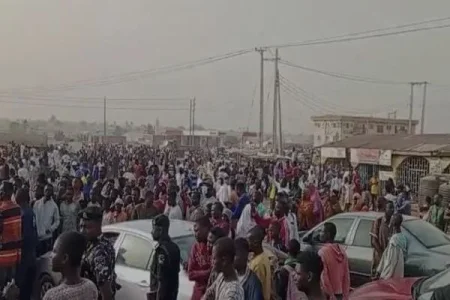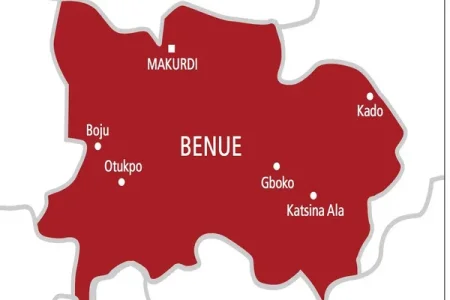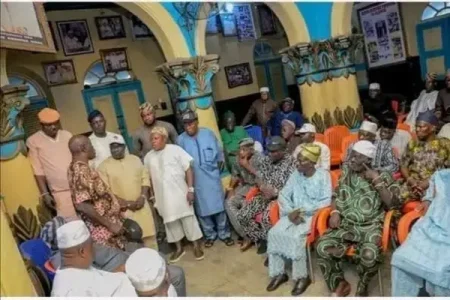
In a display of frustration over the skyrocketing prices of essential commodities, residents of Minna, the capital of Niger State, took to the streets today, halting traffic and demanding urgent action from authorities. The protest, initially led by a group of women who blockaded the Minna-Bida Road at the prominent Kpakungu roundabout as early as 7 am, swiftly escalated as men joined in, intensifying the standoff.
Witnesses reported tense exchanges between demonstrators and law enforcement officers as the crowd swelled, with protesters refusing police orders to disperse. In a bid to control the situation, police resorted to firing multiple shots into the air, further heightening tensions in the area.
Ibrahim Gana, one of the vocal youths among the protesters, highlighted the dire economic circumstances driving their discontent. He lamented the exorbitant prices of staple foods like rice and maize, which have become increasingly unaffordable for many Nigerians. "The Federal Government needs to take action to reduce the hardship being faced by the poor Nigerians. Things are becoming unbearable," he emphasized.
Despite attempts to obtain a statement from the Niger State Police Command, including its spokesperson, DSP Wasiu Abiodun, our efforts were unsuccessful at the time of this report.
The protest in Minna echoes a broader sentiment of discontent across Nigeria, where citizens from various regions have voiced concerns over the relentless surge in prices of essential goods. Investigations conducted in multiple states reveal the widespread impact of these price hikes, pushing many families to the brink of financial instability.
Malam Shehu Usman, a civil servant and father of five, expressed deep dismay at the situation, describing the price increases as inexplicable and calling for divine intervention. "To many of us, life has never been so difficult than what we are going through presently. Many households cannot afford three meals in a day," he shared, reflecting the grim reality faced by countless families grappling with economic hardship.
With the holy month of Ramadan approaching, concerns are mounting over how communities will cope with the financial strain during a period traditionally marked by charitable giving and spiritual reflection. Isah Bello emphasized the urgency for authorities to intervene before the situation spirals out of control, underscoring the critical need for decisive action to alleviate the burden on ordinary citizens.
As Nigerians navigate these turbulent economic waters, the protest in Minna serves as a poignant reminder of the pressing challenges confronting the nation, urging policymakers to prioritize measures that safeguard the welfare of its people.




